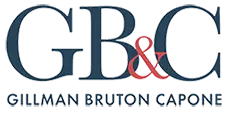Chapter 13 bankruptcy serves as a beacon of hope for individuals facing financial turmoil, especially homeowners. This legal pathway not only offers a chance to reorganize debt but also protects the equity in real estate, which for many, represents a lifetime of investment. Through strategic planning and legal guidance, debtors can navigate Chapter 13 to secure their financial future while retaining valuable assets.
Safeguarding Home Equity
The protection of real estate equity stands as a significant advantage of filing for Chapter 13 bankruptcy. Unlike other forms of bankruptcy where assets might be liquidated to satisfy debts, Chapter 13 allows debtors to keep their property by adhering to a court-approved repayment plan. This plan accounts for the debtor’s income, living expenses, and debt obligations, ensuring that homeowners can maintain their equity and continue to build upon it.
Exemption Planning: A Strategic Approach
Navigating bankruptcy often involves leveraging various exemptions to protect assets from creditors. Chapter 13 is no exception. Exemptions play a critical role in determining how much equity a debtor can protect. Experienced bankruptcy attorneys are instrumental in this process, helping debtors maximize exemptions to safeguard as much equity as possible in their primary residence and other real estate investments.
Equity Buyback: Retaining Ownership
In most cases, debtors may have the opportunity to retain their property during the Chapter 13 process. This strategic move involves structuring the repayment plan in a way that pays back creditors the non-exempt equity in their real property over the life of the plan, while allowing debtors to retain ownership stakes in their assets. Effectively, it provides a pathway to preserve homeownership and real estate investments, emphasizing the debtor’s control over their financial recovery.
Consolidating Debt with Real Estate Equity
A pivotal component of Chapter 13 bankruptcy is the consolidation and reorganization of debts into a manageable repayment plan. Real estate equity can significantly influence this plan, serving as a financial buffer that enhances the debtor’s ability to fulfill creditor obligations. By judiciously leveraging their equity, debtors can propose a repayment strategy that is both feasible and conducive to preserving their assets.
Repayment Plan Flexibility
Flexibility in structuring the repayment plan is one of Chapter 13’s hallmarks. Debtors have the latitude to craft a proposal based on their unique financial landscape, including available assets like real estate equity. This flexibility ensures that the plan is tailored to the debtor’s capacity to pay, fostering a realistic approach to debt resolution without compromising homeownership.
Discuss Real Estate Equity and Debt Repayment Strategies With a Chapter 13 Attorney
Chapter 13 bankruptcy empowers individuals to tackle overwhelming debt while protecting the equity in their real estate. Through careful exemption planning and strategic negotiations, debtors can retain their homes, prevent the liquidation of assets, and lay down a solid foundation for financial stability.
The journey through Chapter 13 involves intricate legal and financial maneuvering, underscoring the importance of expert guidance that only an experienced bankruptcy attorney can provide. By leveraging real estate equity effectively, debtors can navigate the complexities of bankruptcy to emerge with their assets intact and a clearer path toward financial recovery.


